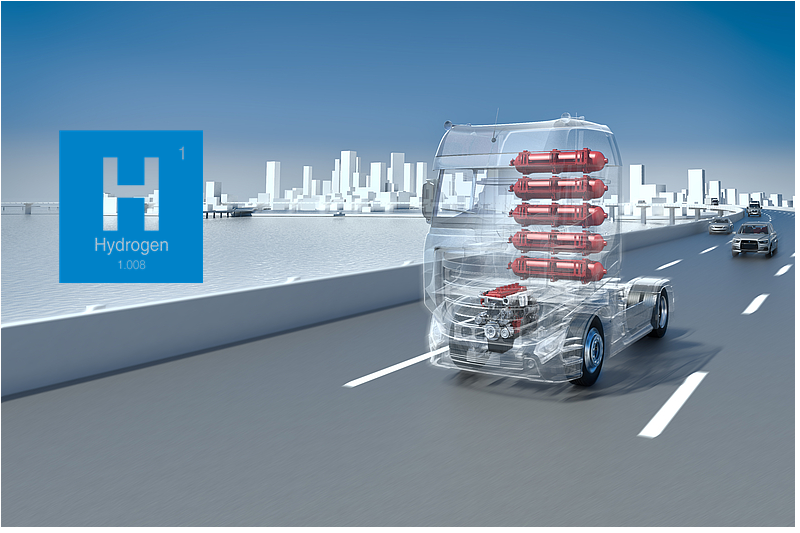
Since the European Union launched the “European Clean Hydrogen Alliance” last July, the hydrogen internal combustion engine has been increasingly in the spotlight in the mobility industry debate on zero-emission drive solutions.
FEV, which has nearly four decades of experience in the development of hydrogen engines, welcomes this openness to the technology of future mobility solutions.
The rise of electric mobility is seen as an important step towards achieving the set climate targets. “However, we always have to consider a relevant application scenario when it comes to making technology choices , ” said Professor Stefan Pischinger , President and CEO of FEV Group. “This has led to an intensification of the debate on the hydrogen engine as another form of sustainable propulsion with vast potential in many areas. “
As a carrier of zero CO2 renewable energy, hydrogen can be transported long distances and used to store large amounts of energy. The use of hydrogen can thus decarbonize parts of the transport sector where electrification by the use of heavy batteries is inefficient, including for commercial vehicles, buses, sedans and even trains and boats.
The infrastructure, which is expected to be in place by 2030, is reigniting the debate over the most appropriate way to use hydrogen. One of the key points of the fuel cell is its high efficiency at low load: at high powers, it decreases. Its optimum efficiency is therefore at low or medium power. In comparison, the hydrogen engine has a high degree of efficiency at high power. In other words, efficiency gains vary with horsepower.
Despite the known advantages, fuel cell development is still in its early stages, and very few methods of development and testing have emerged so far. The hydrogen engine, on the other hand, is a reliable and cost-effective option for zero CO2 transport that can be implemented quickly in current production infrastructure and which also offers real potential for existing vehicles.
The main areas of intervention for the development of the hydrogen engine are as follows:
![]() Hydrogen tank
Hydrogen tank
![]() Regulator
Regulator
![]() Hydrogen injector
Hydrogen injector
![]() Post-processing system
Post-processing system
![]() Ignition system
Ignition system
![]() Crankcase ventilation
Crankcase ventilation
![]() Motor control
Motor control
![]() Air supply
Air supply
Since hydrogen is a carbon neutral fuel, only minimal amounts of hydrocarbons (HC), carbon monoxide (CO), carbon dioxide (CO2) and soot are produced from the burnt lubricant. Reducing oil consumption is therefore another axis of development. The main component of exhaust gases is nitrogen oxide (NOx). Thanks to its very high laminar combustion rate and its wide ignition limits, hydrogen allows lean combustion with a large amount of excess air. The low exhaust gas temperatures mean that even without exhaust gas aftertreatment the nitrogen oxide level is already below current limits. After-treatment is an effective way to further reduce NOx emissions.
FEV has nearly forty years of experience in this field and an excellent track record of completed projects from the development of hydrogen engines for passenger cars and commercial vehicles to stationary and all-terrain engines. The company’s wide range of services also includes the development of individual components such as injectors for direct injection and multi-stage refill systems. FEV also uses its vast expertise from the development of conventional propulsion engines to the development of hydrogen engines.
“Our clients appreciate the fact that FEV can provide them with all the development services of their project from start of delivery to completion,” said Professor Pischinger . “This includes the development and design, construction, vehicle integration, commissioning, calibration and testing of complete hydrogen components and engines. “ February operates test dedicated to Aachen benches, which have a capacity test for internal combustion engines with hydrogen with a maximum power of 640 kW.
Read the most up to date Fuel Cell and Hydrogen Industry news at FuelCellsWorks




